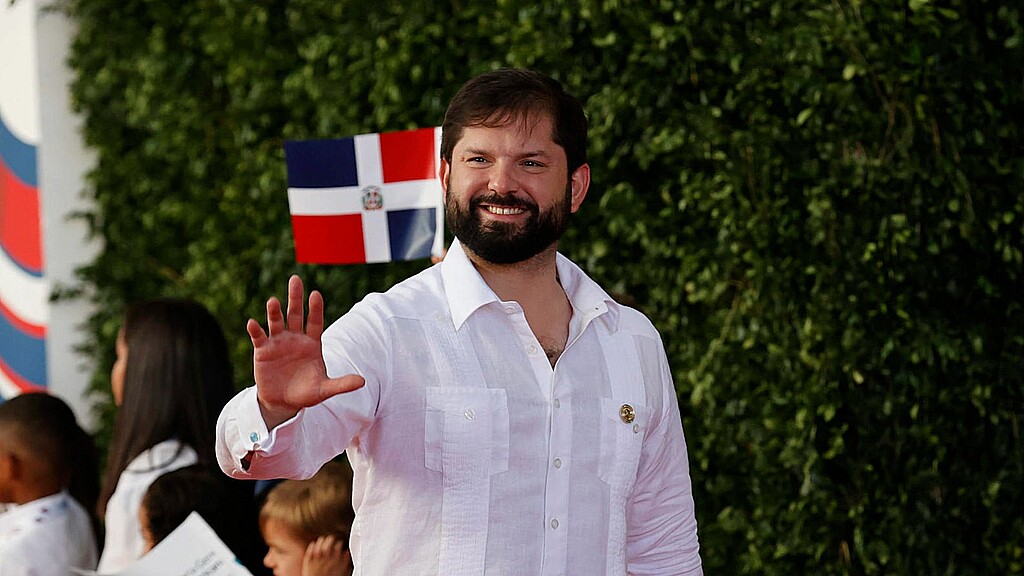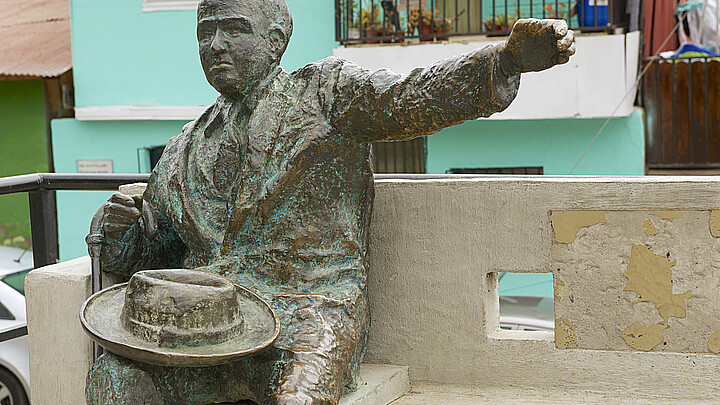Culture
Chile's Palestinian community of half a million bolster Boric's criticism of Israel
Chile is now estimated to have more than half a million Palestinians, the largest community of its kind outside Middle East, some of whom have met with the minister of foreign affairs to push the government into forcing a ceasefire with Israel

November 8, 2023 8:55am
Updated: November 8, 2023 8:55am
While Chilean President Gabriel Boric’s harsh condemnation of Israel’s military response may have surprised some, his reasons do not come as a surprise to many in the region. The newly elected South American leader now presides over a country with more than half a million Palestinians, the largest community of its kind outside the Middle East.
Chile’s Palestinian community plays an politically active role in the Andean nation, and is now using its national influence to push its leaders to criticize Israel over its military response in Gaza, according to a recent report published by Reuters.
Evidence of the community’s influence has become largely evident in the past week since Boric recalled the Chilean ambassador in Tel Aviv and accused of Israel violating international law.
Boric said the Israeli military operation “at this stage acts as a collective punishment to the civilian population in Gaza,” in a recent tweet and raised his concerns during his Thursday meeting with President Biden in Washington.
“There’s no doubt we can say the response has been disproportionate and is violating international humanitarian law,” Boric said to a cache of journalists after his White House meeting with the president.
During the meeting President Biden stressed that the U.S. would continue to support Israel.
“President Biden made clear that the United States will continue to stand with Israel and affirmed Israel’s right to defend itself in line with international humanitarian law. President Biden also reaffirmed our continued efforts to urgently increase and sustain the delivery of life-saving humanitarian assistance – including food, water, and medical care – to civilians in Gaza,” a statement from the White House said.
Boric’s comments come amid five other leftist Latin American countries including Bolivia, Brazil, Colombia, Mexico and Peru criticizing Israel for its military response in Gaza in the wake of the Oct. 7 Hamas attacks that killed 30 Americans, 1,400 Israelis and resulted in 240 hostages being kidnapped by the Palestinian terror group.
Of the six Latin American nations that have turned against Israel, Bolivia took the most severe shift against the Promised Land by severing diplomatic ties.
Since then, the Israeli embassy in Santiago has declined to comment on its relationship with the new Argentine government, which has undergone a dramatic shift to the left since Boric was elected.
Chile’s Jewish community, which is a fraction of the size of the Palestinian community at only 16,000 members, is still the third largest in South America following Argentina and Brazil.
Unlike the Israeli embassy in Santiago, the Chilean Palestinian community took a vocal position, condemning Boric’s decision to recall the ambassador.
Chile’s Jewish community has responded to the Palestinian push by insisting the result will “end up validating the actions of the terrorist group Hamas.”
Hamas terrorists in Gaza penetrated the southern Israeli border, and killed 1,400 in local communities and others attending a music festival, kidnapping an estimated 240 hostages back to Gaza.
Israel has also said Hamas is using civilians as human shields and is rejecting international calls for it to embrace a ceasefire, insisting the hostages would have to be released first.
Israel responded with surgical strikes against Gaza as the Jewish homeland struggles to eradicate Hamas and destroy its complex underground tunnel system, which it has used to send suicide bombers and other terrorist actors across the border to commit acts of violence.
Hamas has been designated as a terrorist organization by the United States and European Union.
The history of Chile’s Palestinian community started with immigration in the late 19th century when Christians began defecting from the Ottoman Empire amid its collapse.
Of the half million Palestinians who live there today, many of them go back as far as fifth generation, making about 2.5% of the country, which has a population of roughly 20 million people.
The community has so much presence in the South American country that there’s even a Chilean-Palestinian group in congress, a century-old first division soccer team, Palestino FC, and an upscale Palestinian Social Club in a wealthy sector of Santiago.
Georges Abed, a Syrian-born parish priest of San Jorge Cathedral, located in a central Santiago neighborhood where Palestinians first arrived told Reuters the Middle Eastern group is immersed in every aspect of Chilean society.
“They’re in the right, the left, the government, universities, industry, commerce, banks, the army and the Carabineros [police force],” he told the news wire service.
With the recent election of Boric, a young progressive leftist, Palestinians have felt empowered, and have consolidated their anti-Israel position by making sure the president hears their voices in protests outside his palace. They have also organized boycotts.
According to media reports from the region, Chilean Palestinians have met with the minister of foreign affairs in a direct attempt to push the government to try and force a ceasefire from Tel Aviv.
Since Israel began its military response to the Hamas Oct. 7 attacks, which resulted in 30 Americans, 1,400 Israelis and a few dozen Latinos from Central and South America being killed, Chile’s Palestinian community has pushed its government to use its influence to force an cease fire.
The state of Israel was created with the support of many nation states in 1948 after World War II and the genocide of 6 million Jews in the Nazi Holocaust.
Despite that tragedy and the displacement of millions of Jews from across the globe, Arab states refused to accept the displacement of some 700,000 Palestinians and have since pushed for either a two state solution or complete dissolution of Israel.
The U.S. government and President Biden have continued to support Israel’s right to self-defense as its government has sworn there will be no cease fire until Hamas releases the 240 hostages it continues to hold captive.







